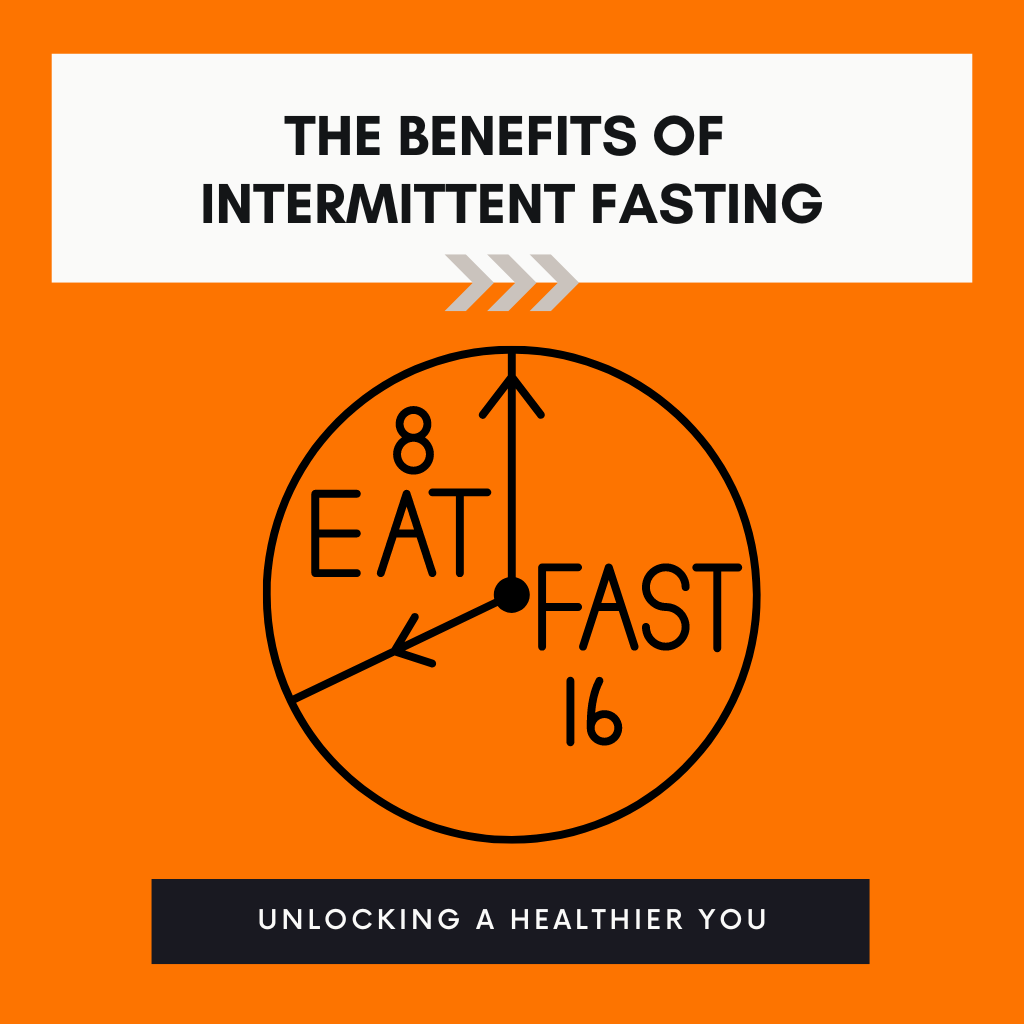The Benefits of Intermittent Fasting:
Unlocking a Healthier You

Intermittent fasting (IF) has gained significant popularity recently as a powerful tool for improving health and managing weight. By cycling between periods of eating and fasting, this eating pattern can offer numerous benefits that go beyond simple weight loss. We’ll explore the key benefits of intermittent fasting and why it might be worth considering as part of your health regimen.
1. Weight Loss and Fat Loss
One of the most well-known benefits of intermittent fasting is its potential to help with weight loss. By restricting the eating window, IF can naturally reduce your calorie intake, leading to weight loss. Additionally, fasting periods can increase norepinephrine (noradrenaline), a hormone that boosts fat burning. Studies have shown intermittent fasting can result in more significant fat loss while preserving muscle mass than traditional calorie-restriction diets.
2. Improved Metabolic Health
Intermittent fasting can positively impact various aspects of metabolic health, including:
- Insulin Sensitivity: Fasting periods can lower blood sugar levels and improve insulin sensitivity, reducing the risk of type 2 diabetes.
- Hormone Regulation: IF can optimize levels of certain hormones, such as increasing the release of growth hormone, which aids in fat burning and muscle gain.
- Reduced Inflammation: Fasting can help decrease inflammation, a key driver of many chronic diseases.
3. Enhanced Brain Function
Intermittent fasting benefits not only the body but also the brain. During fasting periods, the body produces brain-derived neurotrophic factor (BDNF), a protein that supports brain health. Higher levels of BDNF are associated with improved cognitive function, mood, and memory. Fasting may also promote the growth of new neurons and protect the brain from age-related diseases like Alzheimer’s.
4. Longevity and Aging
Research suggests that intermittent fasting can extend lifespan and improve overall longevity. Animal studies have shown that fasting can increase lifespan by influencing various biological pathways involved in aging, such as enhancing cellular repair processes and reducing oxidative stress. While more research is needed in humans, these findings are promising and suggest that IF could help promote a longer, healthier life.
5. Improved Heart Health
Heart disease remains one of the leading causes of death globally. Intermittent fasting can benefit heart health by:
- Reducing Risk Factors: IF has been shown to lower risk factors for heart disease, including blood pressure, cholesterol levels, triglycerides, and inflammatory markers.
- Enhancing Heart Function: Fasting periods can improve heart function and reduce the risk of developing heart disease by promoting better overall cardiovascular health.
6. Simplified Healthy Eating
Intermittent fasting can simplify your eating habits and reduce the stress of constantly planning and preparing meals. With fewer meals to plan for, you can focus on consuming nutrient-dense foods during your eating window, potentially leading to better overall nutrition.
Popular Intermittent Fasting Methods
There are several methods of intermittent fasting, allowing flexibility to find what works best for you:
- 16/8 Method: Fast for 16 hours and eat during an 8-hour window. For example, eating between 12 PM and 8 PM.
- 5:2 Diet: Eat normally five days a week and restrict calorie intake to 500-600 calories on the other two days.
- Eat-Stop-Eat: Fast for 24 hours once or twice a week.
- Alternate-Day Fasting: Alternate between fasting days and eating days.
Is Intermittent Fasting Right for You?
While intermittent fasting offers many potential benefits, it’s essential to approach it mindfully:
- Listen to Your Body: Pay attention to how your body responds and adjust accordingly.
- Stay Hydrated: Drink plenty of water, especially during fasting periods.
- Consult a Professional: If you have underlying health conditions or are taking medication, consult a healthcare professional before starting any fasting regimen.
In conclusion, intermittent fasting is a versatile and potentially powerful approach to improving health and well-being. The benefits of IF are extensive, from weight loss and metabolic health to enhanced brain function and longevity. By finding a method that fits your lifestyle and needs, you can harness the power of intermittent fasting to unlock a healthier you.
